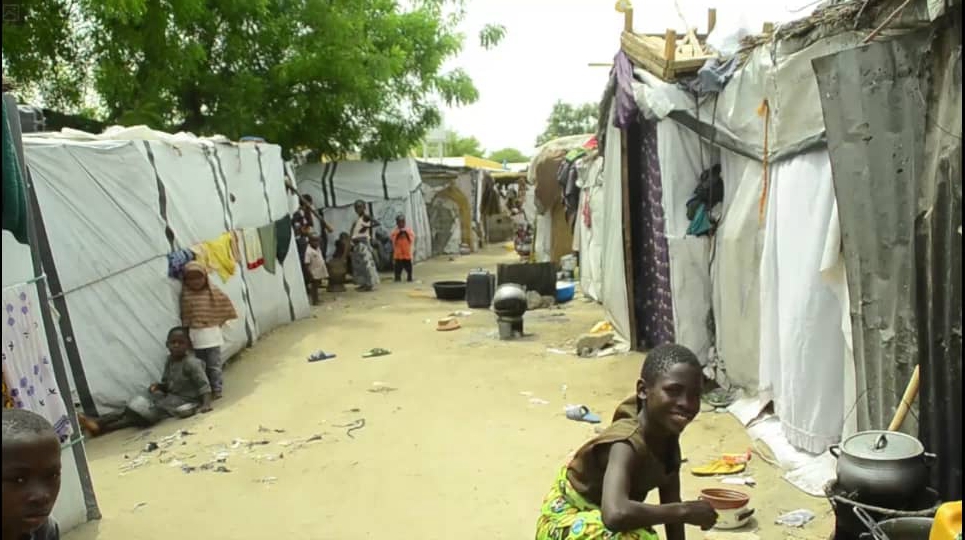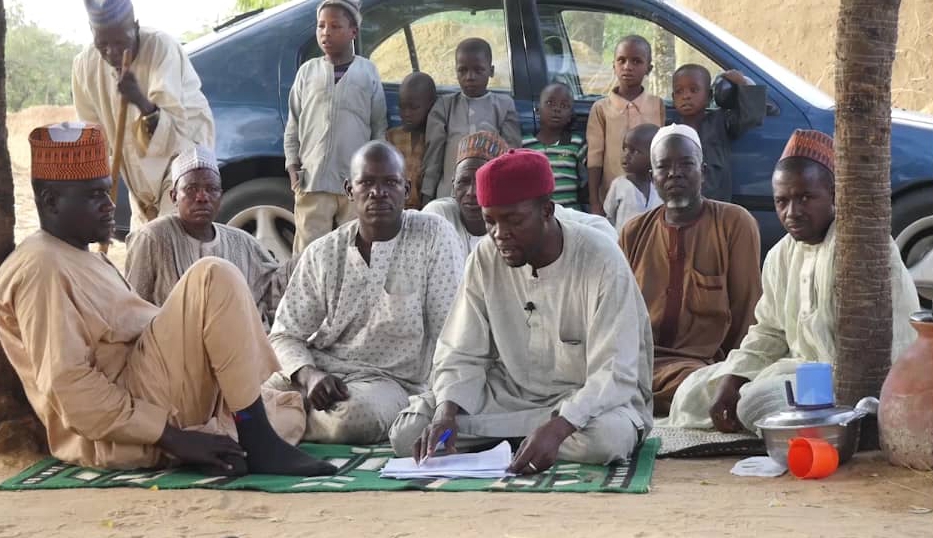
Amina Tela and her eight children have lived as refugees in Biu, Nigeria's northeastern Borno state, for two and a half years. Kelechi Emekalam/CGTN
Amina Tela and her eight children have lived as refugees in Biu, Nigeria's northeastern Borno state, for two and a half years. Kelechi Emekalam/CGTN
For the past two and a half years, Amina Tela and her eight children have lived as refugees in Biu – a local council area in Nigeria's northeastern Borno state. She fled there after the terrorist group Boko Haram attacked her home, killing residents and razing houses.
In Biu, there are no less than 11 people living in a small hut or tent, so observing social distancing has been difficult for many Internally Displaced Persons (IDPs), and the risk of contagion from the novel coronavirus is high.
"That coronavirus, we've been hearing about it. They educated us on how to stay safe by always washing and sanitizing our hands, using face masks, maintaining social distancing. But see how difficult it is to observe social distancing in a place like this," Amina said on a recent CGTN visit.
Camp officials and humanitarian organizations have been stepping up to inform refugees of the dangers of the pandemic and symptoms to watch out for.
In addition to general personal hygiene, they've introduced temperature checks and banned group sittings.

Camp officials and humanitarian organizations have been stepping up to inform refugees of the dangers of the pandemic. Kelechi Emekalam/CGTN
Camp officials and humanitarian organizations have been stepping up to inform refugees of the dangers of the pandemic. Kelechi Emekalam/CGTN
The head of the Biu Refugee Camp, Doris Onyia, said the camp has put in place a food distribution plan to prevent the usual crowds.
When food is brought to the camp and taken to the office, tokens are handed out. "Once the tokens have been distributed, I or any of my officials call out the names, like numbers given to them ... they will come forward, wash their hands with soap and water, sanitize their hands and then the food will be given to them. So, in terms of food distribution, we're just fine," Onyia told CGTN.
However, aid remains insufficient for vulnerable communities and sanitary supplies are also limited. So many IDPs like Amina are hoping it will be safe to return to their original homes soon.
"If given the chance, I'll leave the camp, because it is not my home," she said. "Everybody loves their comfort. If they could allow us to return to our village at Doron Baga we'd be happy, because we are more relaxed and comfortable there. Our husbands will return to their farmlands."
The COVID-19 pandemic has already spread to Nigeria's northeastern states, exposing vulnerable groups who have already faced violent attacks by Boko Haram for nearly a decade.
The UN's Refugee Agency estimates about 2.5 million people live in IDP camps in Nigeria. Now with poor healthcare in the region, preventing the spread of the virus in refugee camps remains a priority for state authorities and camp officials.